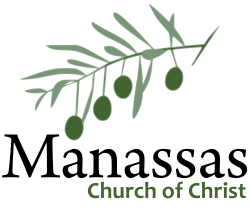Turn to me, be gracious to me; Oh grant strength to your servant, and save the son of your handmaid. Psalm 86.16
O Lord, surely I am your servant, the son of your handmaid…Psalm 116.16
Behold I was brought forth in iniquity, and in sin my mother conceived me. Psalm 51.5
 David is, perhaps, the most accomplished fighting man in history. He was unsurpassed at hand to hand combat. He successfully led a small, highly trained unit to protect a border against large armies. As a general he led an army in the field to a succession of victories. As a king he planned successful campaigns. David is clearly, I believe, the greatest poet in history. His psalms have no parallel in literature, ancient or modern, for their unflinching honesty and grace of expression. In these psalms, David, the warrior-king describes himself as a baby (Psalm 131), as a little lamb (Psalm 23). David the Mighty knows his relationship with God is one of parent to child, shepherd to lamb. He wholly depends on God as caregiver, and treasures above all other blessings the presence of God (Psalm 51.11).
David is, perhaps, the most accomplished fighting man in history. He was unsurpassed at hand to hand combat. He successfully led a small, highly trained unit to protect a border against large armies. As a general he led an army in the field to a succession of victories. As a king he planned successful campaigns. David is clearly, I believe, the greatest poet in history. His psalms have no parallel in literature, ancient or modern, for their unflinching honesty and grace of expression. In these psalms, David, the warrior-king describes himself as a baby (Psalm 131), as a little lamb (Psalm 23). David the Mighty knows his relationship with God is one of parent to child, shepherd to lamb. He wholly depends on God as caregiver, and treasures above all other blessings the presence of God (Psalm 51.11).
But he speaks so little of his own parents. From I Samuel we know that his father is named Jesse, lives in Bethlehem, and has a slew of tall, broad-shouldered boys. We know that David is the baby of the bunch. From Ruth we learn much about his great grand-parents, and from Joshua we know about his great-great grandmother Rahab. But of his mother we know nearly nothing – not even her name.
The only references we have of her are from the three psalms cited above. In two of them David refers to his mother as God’s “handmaid.” In one he claims that his mother sinned in conceiving him. These references present some intriguing questions. Is David reporting the facts or speaking figuratively? How can both be true? If only one assertion is true, which is it? Was David’s mother God’s handmaid, or a promiscuous woman?
David often speaks figuratively in the Psalms. “The LORD is my Shepherd,” (Psalm 23.1) is the best known of hundreds he uses. Psalm 51, his hymn of repentance after sinning with/against Bathsheba is written with such heightened emotion, such vigorous humility that he could be belittling himself by belittling his conception. It could be a way of saying “I have been bad from the beginning.” But one wonders if in a hymn meant to be sung publicly (see the superscription) David would be so cavalier with his mother’s reputation.
Then again, the two references to his mother as God’s “handmaid” may just be a way of describing himself as a servant of God, and the son of a servant. But again, why mention his mother, not his father, if she were not truly known to be a devoted servant of God?
And must we assume that both could not be true? Regardless of the circumstances of David’s conception, could not his mother subsequently have been a faithful servant of God, having been forgiven? Of course she could. Isn’t that the very status David seeks in Psalm 51? Could we not call Paul a persecutor and a saint and be right on both counts? He certainly describes himself this way (I Timothy 1.12-17).
We do not know this “handmaid’s” tale, although the few details we have are intriguing. We do know our own stories though. We know whether or not we have been forgiven. And we know forgiveness is offered, whatever we have done, if we repent.




